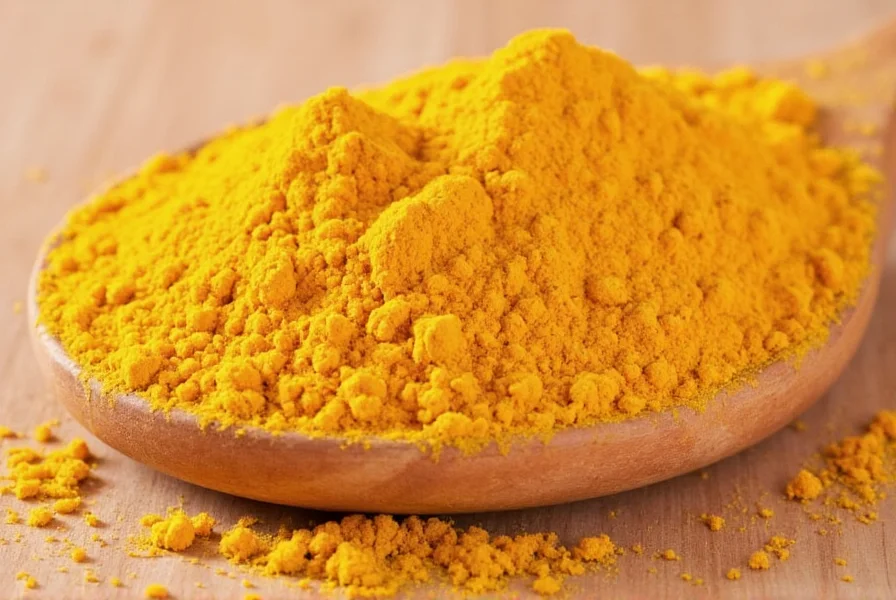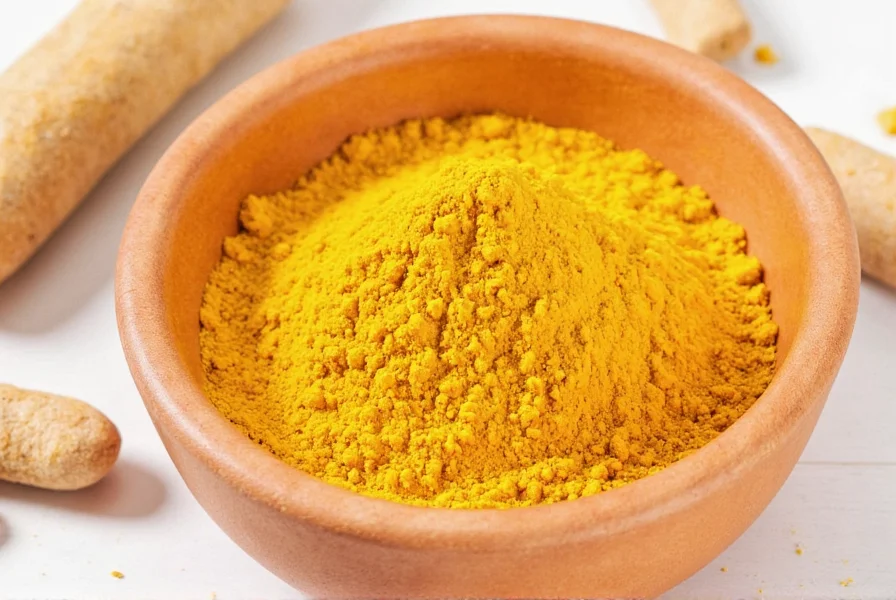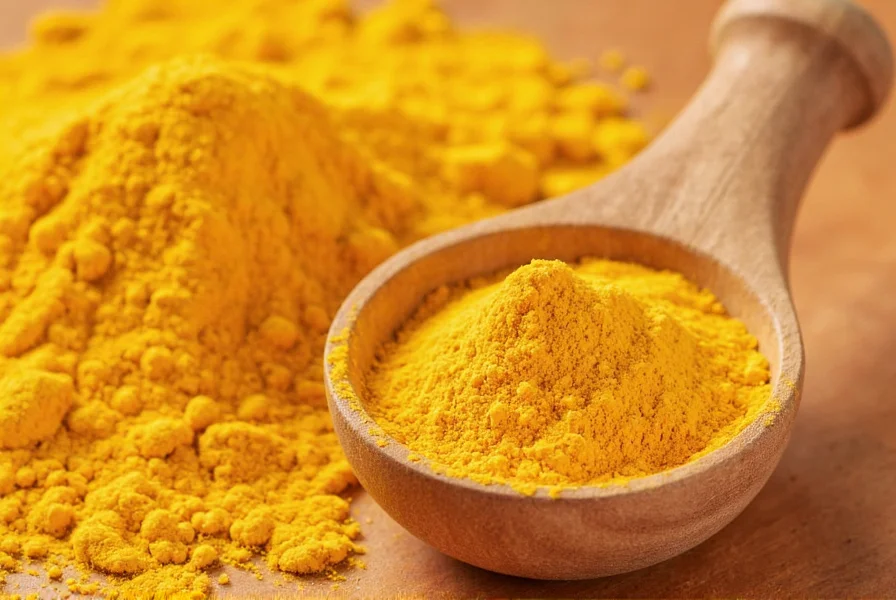The recommended daily turmeric powder dosage for general health benefits ranges from 1/2 to 1.5 teaspoons (1-3 grams), providing approximately 50-150 mg of curcumin. For specific therapeutic purposes, clinical studies typically use standardized curcumin extracts of 500-2,000 mg daily, equivalent to significantly higher amounts of raw turmeric powder. Always consume turmeric with black pepper and healthy fats to enhance absorption by up to 2,000%, and consult your healthcare provider before starting any new supplement regimen, especially if you have medical conditions or take medications.
Understanding the proper turmeric powder dosage is essential for safely harnessing its potential health benefits while avoiding adverse effects. Turmeric, particularly its active compound curcumin, has been extensively studied for its anti-inflammatory and antioxidant properties. However, determining the right amount requires understanding the difference between culinary use and therapeutic supplementation.
Understanding Turmeric Composition and Bioavailability
Raw turmeric powder contains only about 2-8% curcuminoids by weight, with curcumin being the most studied compound. This low concentration means that consuming therapeutic amounts of curcumin requires either large quantities of turmeric powder or standardized extracts. The bioavailability challenge is significant—curcumin is poorly absorbed on its own, rapidly metabolized, and quickly eliminated from the body.
Research shows that combining turmeric with black pepper (containing piperine) increases curcumin absorption by up to 2,000%. Similarly, consuming turmeric with healthy fats enhances its uptake since curcumin is fat-soluble. These factors dramatically affect the effective turmeric powder dosage needed to achieve potential health benefits.
Standard Turmeric Powder Dosage Recommendations
For general wellness and preventive health, culinary use of turmeric provides safe and beneficial amounts. The following table outlines appropriate turmeric powder dosage for different purposes:
| Purpose | Daily Turmeric Powder Dosage | Approximate Curcumin Content | Duration Guidelines |
|---|---|---|---|
| Culinary use (general health) | 1/2 to 1.5 teaspoons (1-3g) | 20-90mg | Long-term, daily |
| Mild inflammation support | 1 to 2 teaspoons (2-4g) | 40-160mg | 4-8 weeks, consult professional |
| Therapeutic use (standardized extract) | N/A (use extract) | 500-1,500mg | Under medical supervision |
| Maximum safe daily amount | 3 teaspoons (6g) | 180mg | Short-term only |
Dosage Considerations for Specific Health Conditions
Research on turmeric's effects varies by condition, with different studies using varying dosages. For osteoarthritis, clinical trials have used 500 mg of curcumin twice daily (equivalent to approximately 16-25 grams of turmeric powder). For metabolic syndrome, studies have employed 80-120 mg of curcumin daily (about 2-4 grams of turmeric powder).
It's crucial to understand that these research protocols often use standardized curcumin extracts rather than raw turmeric powder. Achieving similar curcumin levels through turmeric powder alone would require consuming impractical amounts—potentially 10-20 teaspoons daily—which could cause digestive discomfort and other side effects.
Safety Profile and Potential Side Effects
Turmeric is generally recognized as safe (GRAS) by the FDA when used as a food ingredient. However, higher therapeutic doses may cause:
- Digestive issues (nausea, diarrhea) at doses above 8 grams daily
- Increased risk of bleeding when combined with blood thinners
- Interference with iron absorption in susceptible individuals
- Potential gallbladder contractions in people with gallstones
People with certain medical conditions should exercise particular caution. Those with gallbladder disease, bleeding disorders, diabetes, or gastroesophageal reflux disease (GERD) should consult healthcare providers before using turmeric medicinally. Pregnant and breastfeeding women should stick to culinary amounts unless advised otherwise by their doctors.
Optimizing Your Turmeric Powder Dosage
To maximize the benefits of your turmeric powder dosage while minimizing required amounts:
- Combine with black pepper: Just 1/20 teaspoon (about 20mg) of black pepper significantly enhances absorption
- Take with healthy fats: Consume turmeric with avocado, olive oil, or coconut oil
- Heat gently: Light cooking can increase curcumin solubility without degrading it
- Consider timing: Take with meals to reduce potential digestive upset
- Split doses: Divide larger amounts throughout the day for better sustained levels
For those seeking therapeutic benefits without consuming large amounts of turmeric powder, standardized curcumin supplements with enhanced bioavailability (like those containing piperine or formulated as phospholipid complexes) provide a more practical solution. These typically deliver 500-1,000 mg of curcumin with much smaller pill sizes than would be possible with raw turmeric.
When to Consult a Healthcare Professional
Before starting any turmeric supplementation regimen, especially at therapeutic doses, consult with your healthcare provider if you:
- Take blood-thinning medications like warfarin
- Have diabetes and take medication to control blood sugar
- Have gallbladder problems or kidney stones
- Are scheduled for surgery within the next two weeks
- Are pregnant or breastfeeding
- Take medications metabolized by cytochrome P450 enzymes
Your healthcare provider can help determine the appropriate turmeric powder dosage based on your individual health status, potential medication interactions, and specific health goals. They may also recommend periodic monitoring if you're using turmeric for extended periods at higher doses.
Practical Daily Incorporation Strategies
Integrating the proper turmeric powder dosage into your daily routine can be simple and enjoyable. Start with smaller amounts and gradually increase to assess tolerance. A golden milk recipe using 1/2 teaspoon of turmeric powder with black pepper and coconut milk makes an excellent evening beverage. For cooking, add turmeric toward the end of the cooking process to preserve more of its beneficial compounds.
When measuring your turmeric powder dosage, remember that 1 teaspoon equals approximately 2 grams. Use a proper measuring spoon rather than estimating, as volume can vary significantly based on how densely the powder is packed. Store turmeric in an airtight container away from light and heat to preserve its potency over time.

Consistency matters more than occasional high doses when incorporating turmeric into your wellness routine. Regular daily consumption of moderate amounts provides more sustained benefits than sporadic large doses. Pay attention to how your body responds and adjust your turmeric powder dosage accordingly, always staying within established safety parameters.

What is the maximum safe daily turmeric powder dosage?
The maximum safe daily amount of turmeric powder for most adults is approximately 3 teaspoons (6 grams), providing about 180 mg of curcumin. Consuming more than this may cause digestive issues like nausea or diarrhea. Long-term safety data for higher doses is limited, so it's advisable to stay within this range unless under medical supervision.
How much turmeric powder equals 1000mg of curcumin?
Since turmeric powder contains approximately 3-5% curcumin by weight, you would need about 20-33 grams (10-16 teaspoons) of turmeric powder to obtain 1000mg of curcumin. This is why standardized curcumin extracts are typically recommended for therapeutic dosing rather than raw turmeric powder.
Can I take turmeric powder on an empty stomach?
It's generally not recommended to take therapeutic doses of turmeric powder on an empty stomach as it may cause digestive discomfort. For best results and tolerance, consume turmeric with food, particularly with healthy fats to enhance absorption. Culinary amounts used in cooking are typically well-tolerated regardless of meal timing.
How long does it take to see results from proper turmeric powder dosage?
The timeframe for noticing benefits from turmeric varies by individual and condition. For inflammation-related issues, some people report improvements within 2-4 weeks of consistent daily use at appropriate dosages. More chronic conditions may require 4-8 weeks of regular use. Research suggests that curcumin levels build up in the body over time, so consistent daily consumption yields better results than sporadic use.
Is there a difference between turmeric powder dosage for prevention versus treatment?
Yes, there is a significant difference. For general health maintenance and prevention, 1/2 to 1 teaspoon (1-2 grams) of turmeric powder daily is sufficient. For addressing specific health concerns, higher amounts may be needed—typically 1.5 to 3 teaspoons (3-6 grams) daily—but these therapeutic doses should be used under healthcare provider guidance and for limited durations.
Final Considerations on Turmeric Powder Dosage
Finding the right turmeric powder dosage involves balancing potential benefits with safety considerations. While turmeric is generally safe as a food spice, therapeutic use requires more careful consideration. The optimal amount varies based on individual health status, specific goals, and whether you're using raw turmeric or standardized extracts.
Remember that more isn't always better when it comes to natural supplements. Consistent moderate dosing typically provides better results than occasional high doses. Always prioritize quality by choosing organic, tested turmeric powder from reputable sources to avoid contaminants like heavy metals that can sometimes be present in lower-quality products.
As research continues to evolve, dosage recommendations may be refined. Stay informed through reliable health sources and maintain open communication with your healthcare provider about your supplement regimen. When used appropriately, turmeric can be a valuable component of a comprehensive approach to wellness.











 浙公网安备
33010002000092号
浙公网安备
33010002000092号 浙B2-20120091-4
浙B2-20120091-4